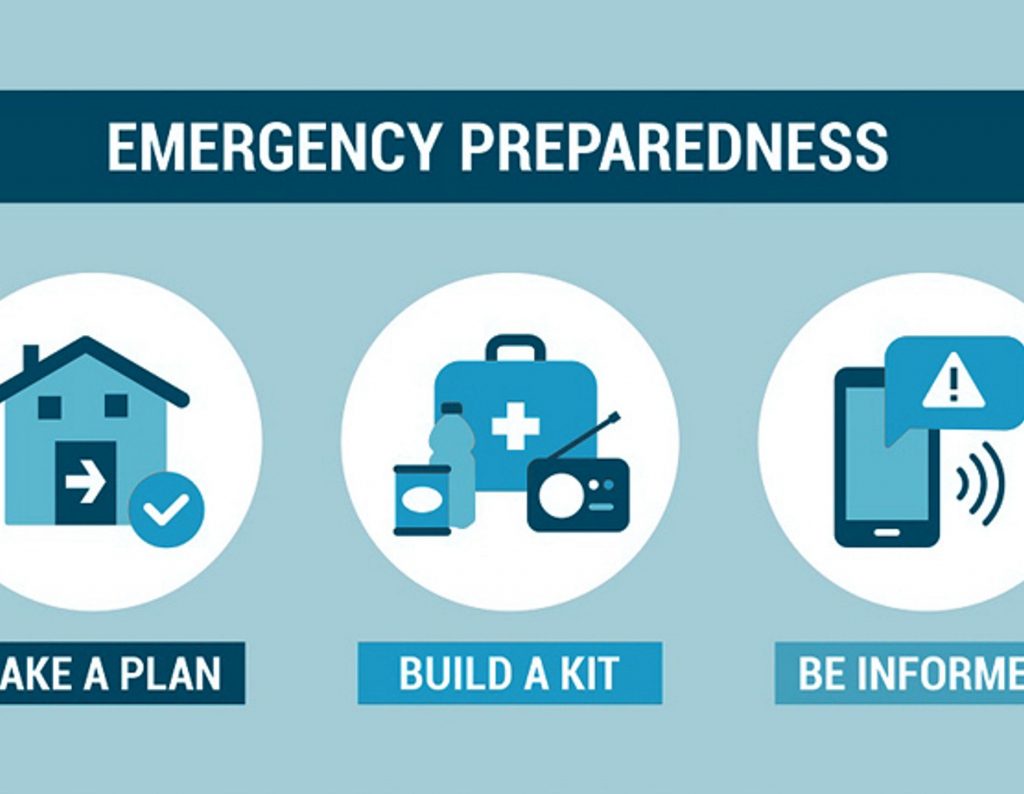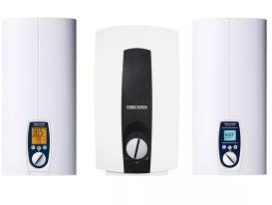Smart Ways to Prepare for a Home Emergency
Emergencies are those circumstances that happen unexpectedly. Maybe there was a natural disaster or perhaps you had a power outage or a house fire. Without any preparation for emergencies, you might be left not knowing what to do.
No one wants to go through a home emergency, but they happen, so it’s best to be prepared. Here are some smart ways to prepare for a home emergency to keep you and your family safe.
Contents [hide]
Learn Which Disasters Could Strike in Your Region
Depending on where you live, you may be more prone to one natural disaster or home emergency than other regions. Each crisis requires different supplies and prep, so research what disasters are prevalent in your area.
Here are some common natural disasters that occur around the United States:
- Floods: Flooding happens nearly anywhere. With enough rain or snow melting, waters can reach high levels with quick-moving water that can damage whole towns.
- Earthquakes: Earthquakes can also happen anywhere at any time of the year. However, they tend to occur in the midwest and western states more often.
- Wildfires: Areas with a higher risk for wildfires are areas with little rain, such as California.
- Tornadoes: Usually striking in the springtime, states prone to tornadoes are those in Tornado Alley, which includes mostly the middle United States.
- Hurricanes: Hurricanes affect any state that borders an ocean or the Gulf, but inland states experience the after-effects like heavy rains and wind.
- Blizzards: Most common in the northeastern and western states, blizzards and winter storms make driving dangerous and can cause power outages.
Of course, with nature, anything can happen. However, research and past patterns show that certain areas experience certain natural disasters more than others.
Put Together an Emergency Kit
While people will experience different levels of emergencies, you should put together a general one. This will include all of the items you need to survive anywhere from a few days to a couple of weeks. It should contain enough items for your entire household.
Any emergency kit basics will include food, water, first aid supplies, matches, batteries, flashlights, an extra outfit or warm clothes, a blanket and the list goes on. Because of Coronavirus, most emergency kit items have been updated to include masks and hand sanitizer.
If you have individual needs, make sure to add items to your kits that suit those, like medications and any important family documents.
Save for an Emergency Fund
With unexpected circumstances come unexpected expenses. When you’re in the midst of an emergency, you want to make sure you have enough money saved up for medical, travel or home costs.
Banks suggest emergency funds for everyone. Even if your state isn’t prone to many natural disasters or your neighborhood isn’t one of high risk for crimes, you should still have money set aside. You never know when you’ll need it.
Anywhere from three to six months of paychecks is a fair amount for an emergency fund. Start saving now for the unknown future.
Make a Plan
In an emergency, make sure you have an action plan and that your entire household knows it. The plan should include an emergency escape route with at least two exits in case one is blocked. It should also include a meeting place for family members, whether it is down the road a block or at someone else’s home.
Additionally, make a list of emergency contacts, like the local police, fire and ambulance departments as well as a hospital, schools and family members. Teach your children these numbers and have them practice them or recite them. Make sure you have access to a working phone as well.
Prevent Disasters Before They Happen
The safest way to protect your home and family is to prevent disasters before they happen. While you can’t stop a natural disaster, you can prepare to stay safe if there is an emergency.
One way to prevent disasters is by adding detection devices to your home. Nearly 100% of households have at least one smoke detector. Besides smoke alarms, there are other detectors that will warn you of a dangerous situation. Here’s a list of other detectors you can put in your home to prevent an emergency:
- Carbon monoxide: Carbon monoxide is odorless and colorless. A poor heating system or a car running too long in a closed garage can release this toxic gas.
- Radon: Also a colorless and odorless gas, radon kills about 20,000 people per year.
- Radiation: Although low radiation levels won’t harm a human, a catastrophic event, like Chernobyl, could release radiation.
- Propane: Propane doesn’t pose a huge risk since most people only use it for an outdoor grill. However, if you have a heater or a camper that uses propane, you’ll want to get a detector in case of a leak.
- Natural gas: Many people heat their homes with natural gas. The gas is naturally odorless, but the gas in homes has an odor added to it, so you can use your nose or purchase a detector.
In addition, you can sign up for alerts to warn you of an emergency. If a bad storm or wildfire is coming near your home, you’ll get an alert before the emergency blindsides you.
Be Ready for Any Emergency
With these tips, you will have a better chance of staying safe when emergency strikes. It’s better to have some preparation and prevention than none at all. Take the precautions so you and your home will be smart and ready if any unexpected circumstance comes your way




